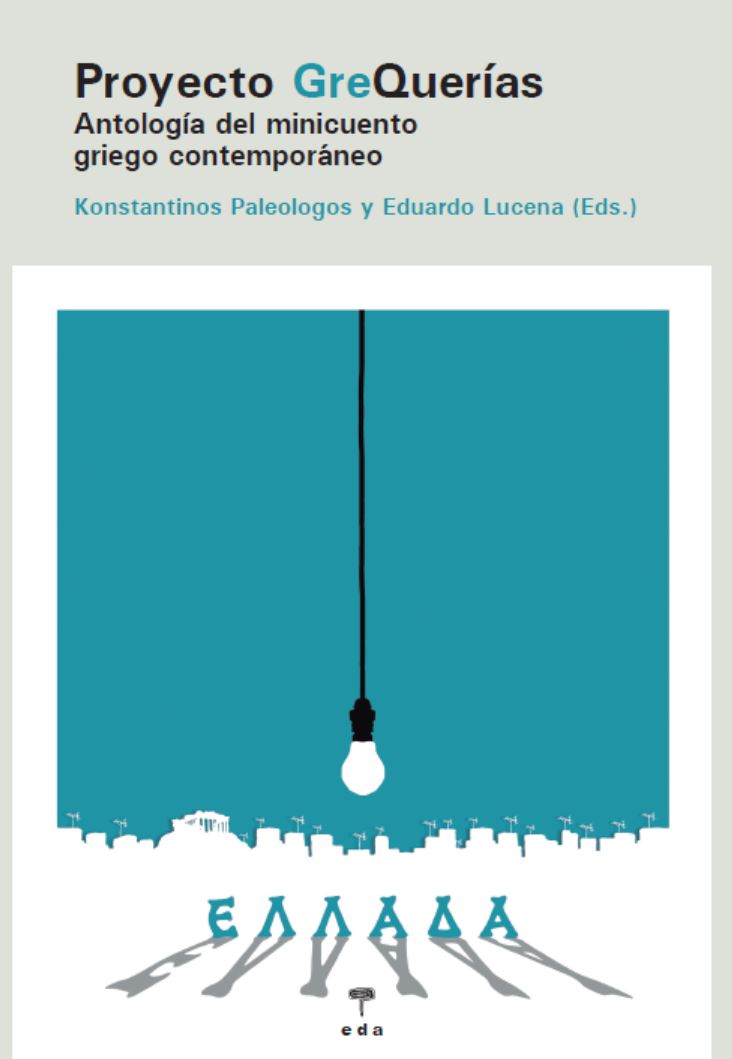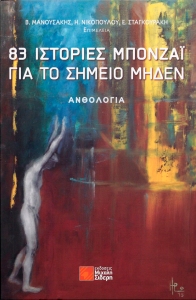.
.
Elias Kefalas
.
The plain at noon
.
 T WAS JUNE and during noontime it was boiling hot in the Trikala plain. My father and mister Pampoudis were having a quite spirited conversation under the shade of a broad-leafed mulberry. It seemed that they were coming to a dead end, that’s why their discontent was more than obvious. I couldn’t hear much of their boisterous talk, because all the while my mind was focused on mister Pampoudis’s daughter. She was a little girl with red shoe brakes and a white long-rimmed hat, as I clearly remember, and most importantly she had almost the same age as me: seven childish and luminous and flawless years of age.
T WAS JUNE and during noontime it was boiling hot in the Trikala plain. My father and mister Pampoudis were having a quite spirited conversation under the shade of a broad-leafed mulberry. It seemed that they were coming to a dead end, that’s why their discontent was more than obvious. I couldn’t hear much of their boisterous talk, because all the while my mind was focused on mister Pampoudis’s daughter. She was a little girl with red shoe brakes and a white long-rimmed hat, as I clearly remember, and most importantly she had almost the same age as me: seven childish and luminous and flawless years of age.
We were all drenched in sweat. Mister Pampoudis was wiping his forehead with a white handkerchief, while my father – resilient to heat and the arguments of his interlocutor – was resisting patiently. When I grasped the meaning of the conversation at some point, my heart started fluttering in a frenzy. Mister Pampoudis was trying to sell my father a combine harvester and every now and then he was pointing with his right hand toward the bright yellow plain with the ripe wheat ready for harvesting. His daughter was doing the same thing, playing and drawing half moons in the air with her small delicate hand.
As she was running in circles around the mulberry, I was following her asking in admiration: “Do you have a lot of combine harvesters?”
“Innumerable,” she replied, “they can harvest your whole plain in one day.”
I had bitten my lip. How could I explain that our only possession was a few fields and not the whole plain. It doesn’t matter though, I thought, since childish naivety is friends with exaggeration and it is better for her to believe that the whole plain was ours.
Mister Pampoudis started to go in a while, quite disappointed, and he absent-mindedly reached for his daughter. My father was trying to console him in a way, telling him that “next year he would definitely be ready to buy, as long as the terms wouldn’t change” and he absent-mindedly extended his arm to grab me too.
Then, mister Pampoudis’s daughter threw a question at me all of a sudden, turning her head over her suntanned back: “Boy, do you know how to sow?”
“I’m not a boy,” I told her angrily and I continued a bit moodily: “No, I don’t know how to sow yet.” And to take my revenge, I immediately asked: “You with the machines, do you know how to reap?”
While asking, I was following her and my father started calling me.
She didn’t lose her temper. Turning her head back again, she shouted: “No, I don’t know either. But don’t be sorry, silly, in a few years we will both know how to sow and reap.”
I was stunned, feeling she became my friend at this very instant.
I started running more forcefully and I caught her the moment she was entering with her father in a dusty prewar Peugeot model.
“Hey, what’s your name,” I shouted, trying to catch my breath.
“Pavlinaaaa,” the daughter of mister Pampoudis shouted back and she was glowing smiling at me through the open car window.
.
.
Source: First publication.
Elias Kefalas (Meligos, Trikala, 1951). Poet, short story writer, critic. Studied Political Sciences in Athens. Lives and works in Meligos, Trikala. His first book is: Ta mastigia (1980, poetry).
Translated from the Greek by
Vassilis Manoussakis (Athens, 1972). Poet, short-story writer, translator. He studied English Language and Literature. He currently teaches at the Hellenic American University in Athens.
.
Filed under: Μανουσάκης Βασίλης,Kefalas Elias | Tagged: Elias Kefalas,Βασίλης Μανουσάκης | Τὰ σχόλια στὸ Elias Kefalas: The plain at noon ἔχουν κλείσει









